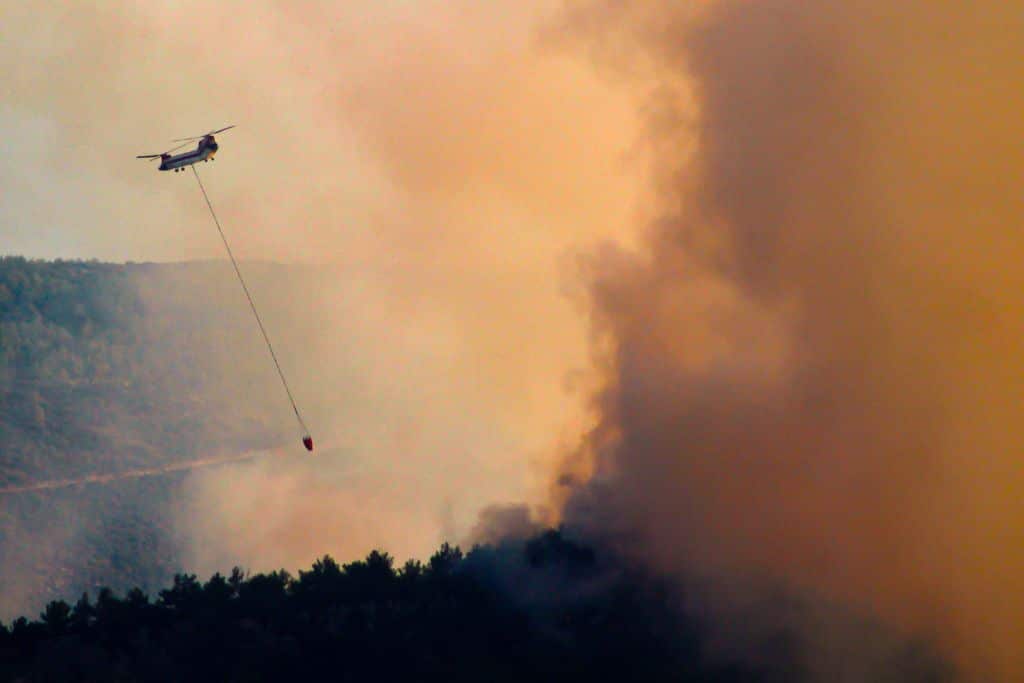Wildfires are spreading faster and affecting larger areas each year in the Mediterranean. In this photostory, Utku Furan delves into delve into the complex ways that wildfires are affecting local communities in Turkey, the factors fuelling this phenomenon, and its consequences within the Turkish Mediterranean region.
—
Summer 2023 was the warmest on record globally. Multiple countries in the Mediterranean have experienced long-lasting heatwaves, extreme drought conditions, and destructive wildfires. However, this is not the first time the intensity of fires has affected the Mediterranean region socially and ecologically.
Although the climate crisis is one factor that deepens the impacts of fires, top-down fire management policies, the abandonment of traditional local practices, and rural depopulation are other reasons that intensify the impact of fires in the Mediterranean. The increasing frequency, scale, and intensity of fires are having unprecedented social, cultural, ecological, and economic repercussions.
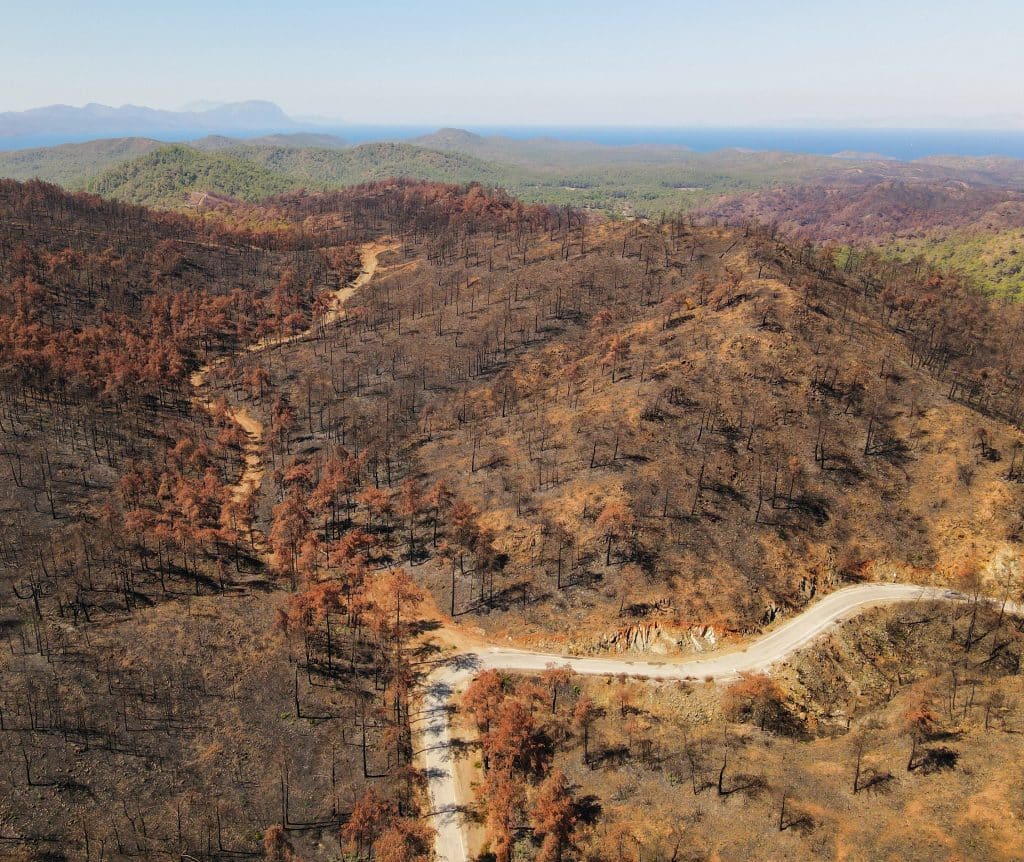
Among the countries most affected by wildfires in the Mediterranean region is Turkey. According to Statista, since 2021, 233,653 hectares of forest have been lost to fires in Turkey. Residents who are evacuated during the fires often find their homes, cars, or olive farms burnt to the ground upon their return. This forces local people to move from their homelands permanently, effectively turning them into climate migrants in their own country.
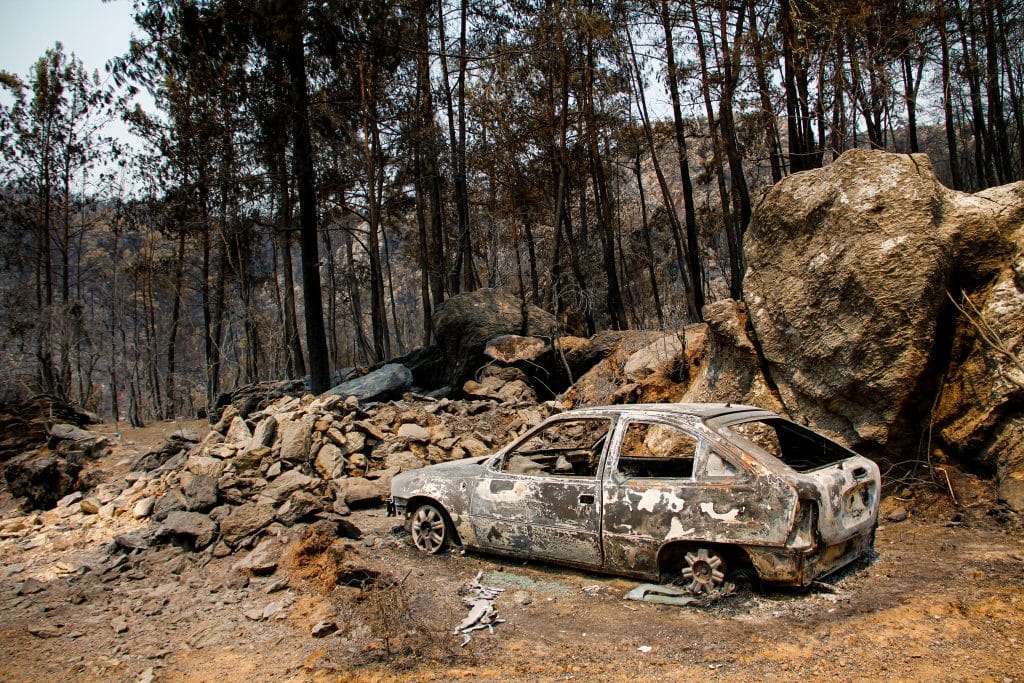
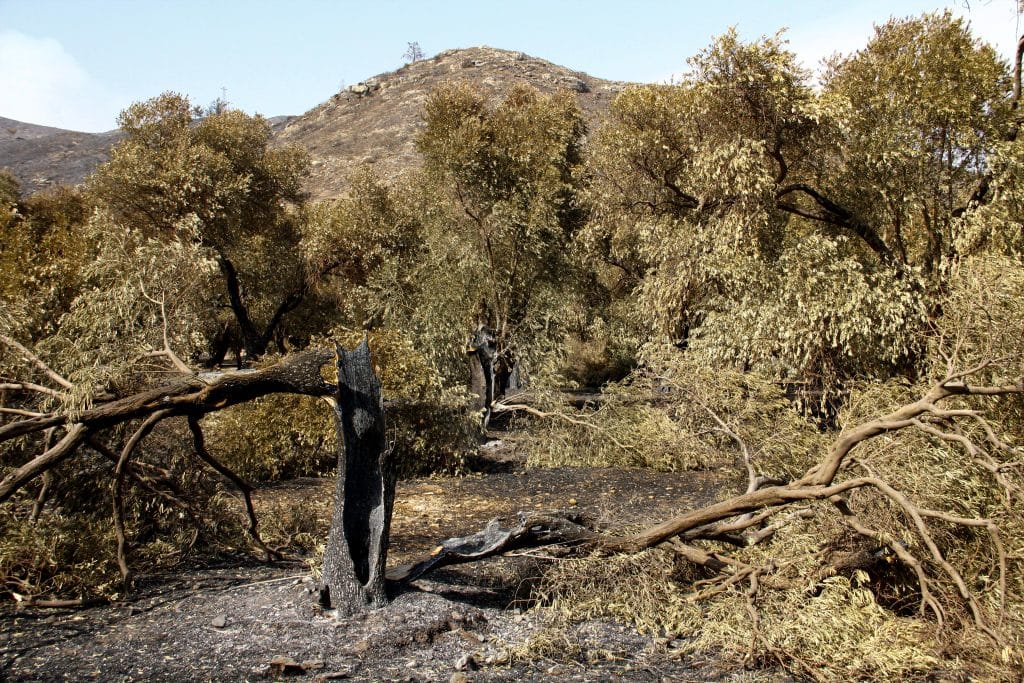
Fires in Turkey mostly affect rural villages, which are typically surrounded by red pine forests. In the forest villages, local communities’ livelihoods solely depend on these forests. Their livelihoods consist of forest work, olive farming, goat herding, trading of forest plants, and beekeeping.
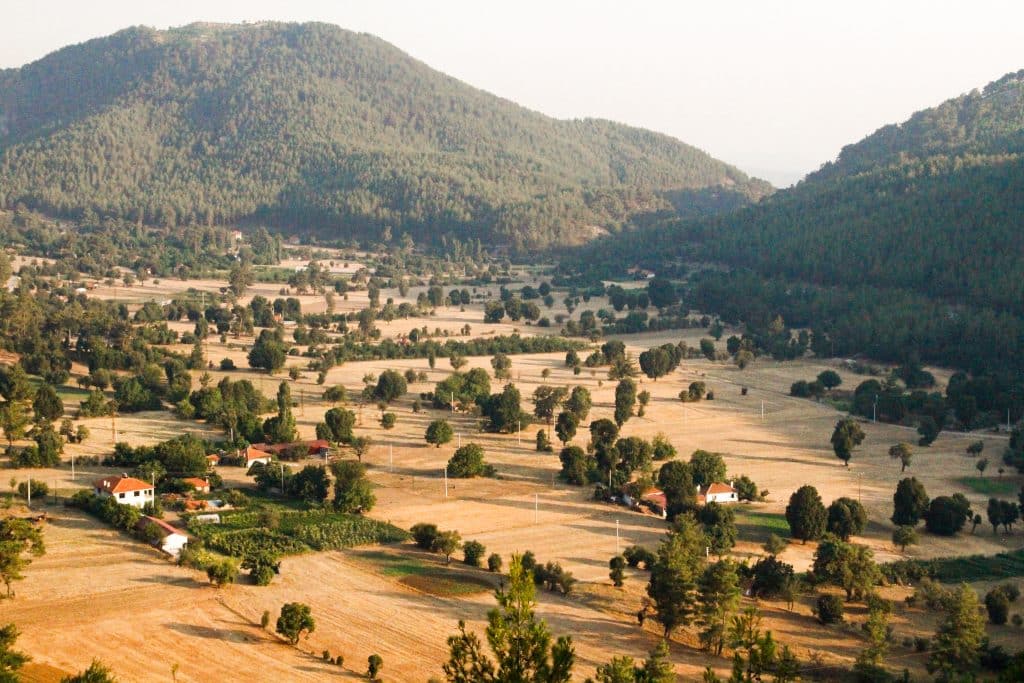
In terms of livelihoods in the forest villages, pine honey harvesting used to be a significant contributor before the wildfires. Turkey produces 90% of the world’s pine honey, with the Mugla Province being the most productive area. In this area, the beekeeping profession has always been highly appreciated and maintained as ancestral work. During my field visits to this region, I met with Ali, 62, and his father Suleyman, 81, in Koycegiz.
As Suleyman explained to me, their families’ last four generations worked to keep the local beekeeping practice alive. Their bee shelter (Arı yurdu in Turkish) up in the mountains was built 200 years ago by their grandfathers, who used to harvest the pine honey and use the shelter as their second home. As I was interviewing Ali and Suleyman, Ali brought a few photos to show their bee shelter.
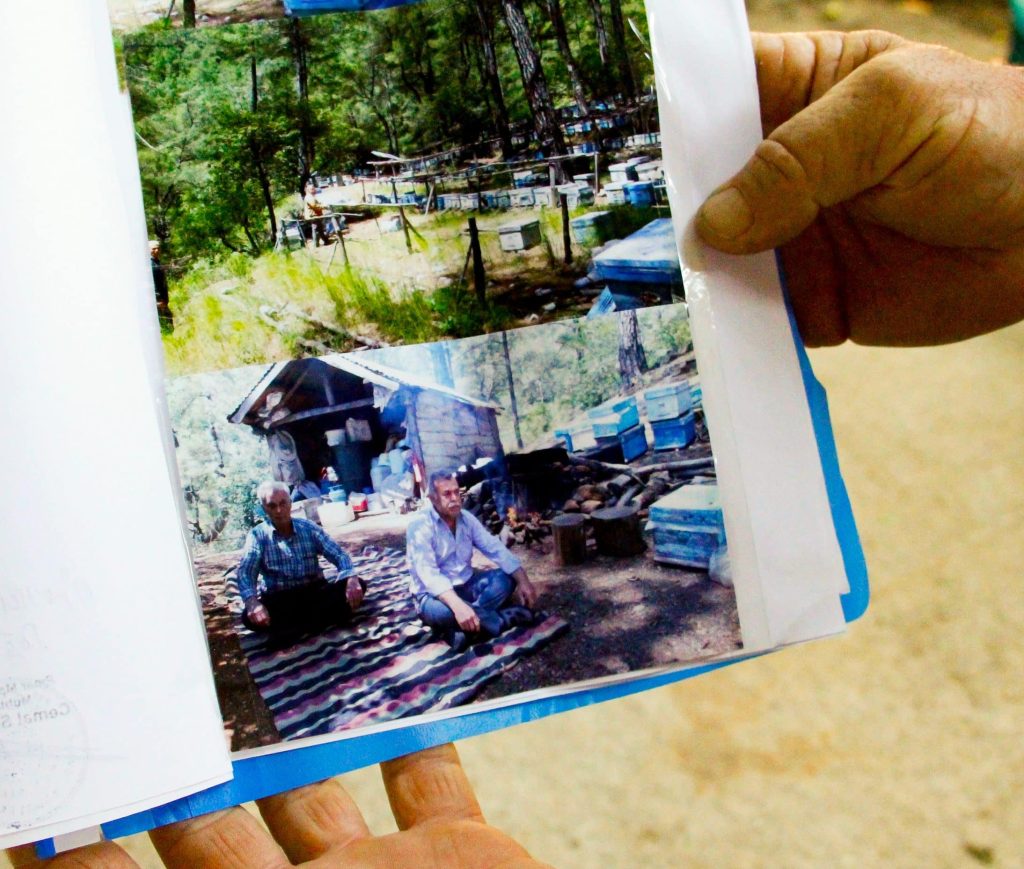
“We evolved our traditional bee-keeping practices in this shelter and we learned all the beekeeping there. We didn’t go to the bee shelter only to harvest pine honey but also to spend time in the forest. Having this shelter in the forest significantly improved the quality of life of all of our family members,” he explained. “We used to protect forests from fires like our homes. We used to spend time in pine trees to celebrate birthdays or do picnics. However, all of these stay in our memories and photographs now because the entire area was completely burnt by wildfires.”
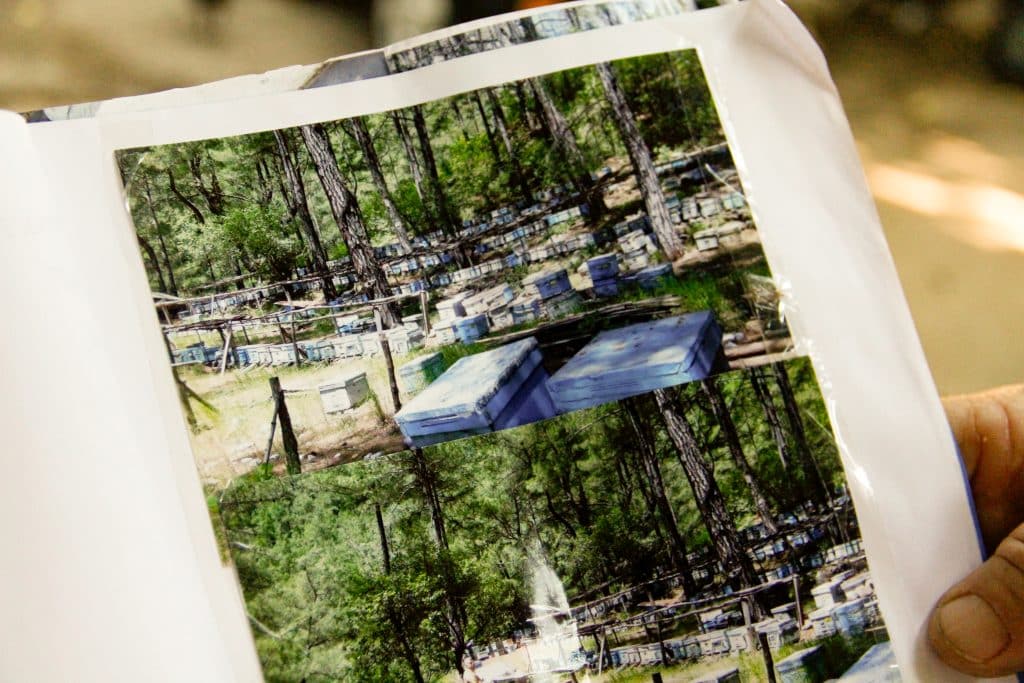
After seeing photos of the bee shelter, I noticed that the bee hives in their backyard are the same ones depicted in the pictures.
“Fires up in the mountains escalated so quickly. We realised how big the fire was when we went to save our bee shelter and hives. 300 of our beehives were already burnt down when we got there. We saved 250 hives and put them here, in our backyard. However, all of the bee colonies died due to lack of sugar and food,” Suleyman explained. “Bees cannot feed themselves from the pine trees anymore. There is no forest left to put our bee hives in. For this reason, it is not profitable to keep doing this business as in the past. Beekeeping no longer provides a living for us.”
As Ali added, it is going to take at least another 30 to 40 years for the forest to regenerate and provide honey again for them.
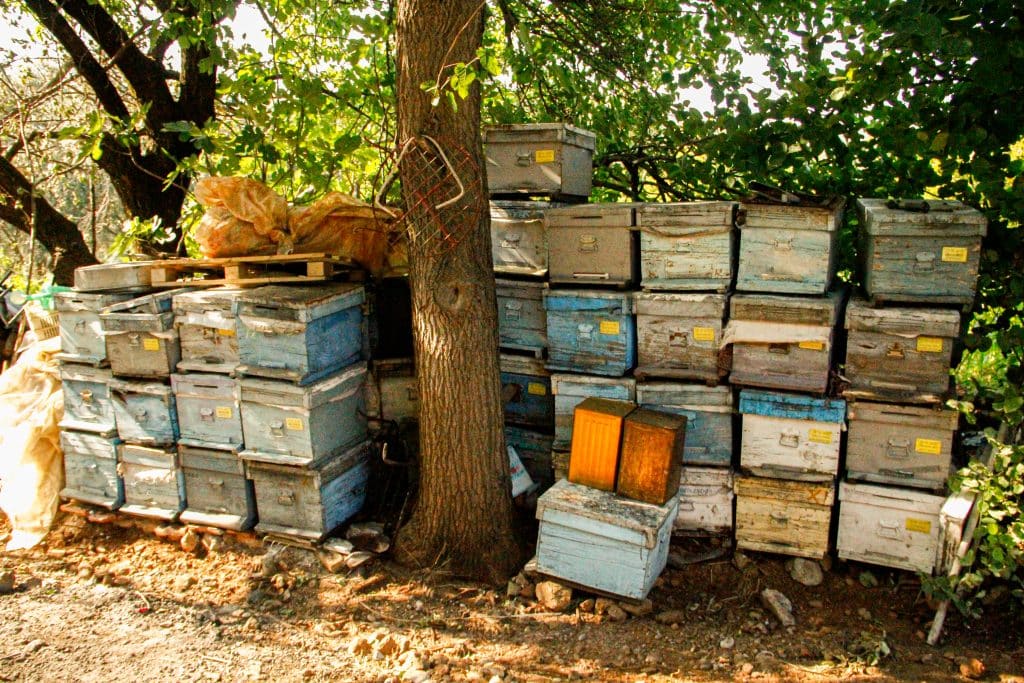
You might also like: Fanning the Flames: How Climate Change Fuels More Destructive Fire Seasons
Besides pine honey harvesting, goat grazing is another cultural and economic practice that used to be passed down from one generation to the next. However, due to several policies, grazing has been reduced heavily in the area throughout the years. Combined with the impacts of wildfires, I learnt that very few herders are left in the forests now. One of them is Ahmet, 45. As he tells me, goat herding has been the main income activity for several years for many local families. Although fires burned most of their herding area, he and his son are still trying to maintain this cultural practice.

While Ahmet was looking at the burnt area where he used to graze his goats, he started explaining the reasons why goat grazing can actually be a powerful fire prevention mechanism.
“In the past, every household had at least 100 or 150 animals. There were many goats in the forests that used to crush the dry material and eat short shrubs. This is one of the reasons why the forest ground was cleaner with less dry material and fires weren’t spreading as fast as today,” he explained. “As people started moving to cities and animals disappeared, forest grounds were overtaken by bushes. The probability of the fire reaching the top of the pine trees is much higher now because of these dry bushes. This is why all this forest burnt down in only ten minutes.”
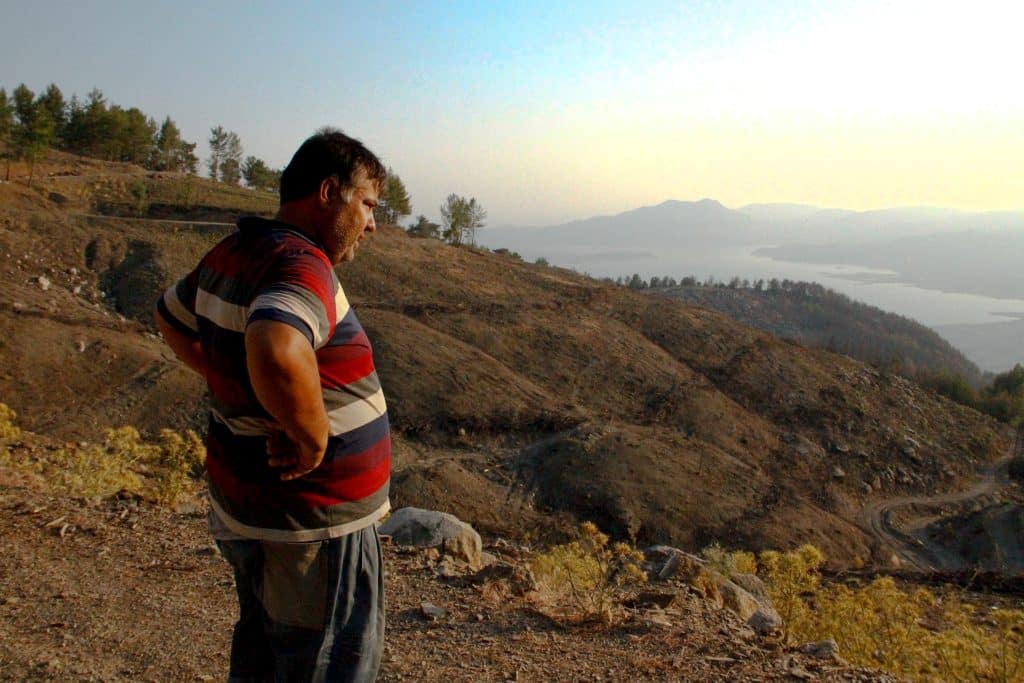
Millions of hectares of forest area are damaged every year by forest fires not only in Turkey or Mediterranean countries but all over the world. As studies show, it is highly likely that the intensity and impact of fires will be worsening in the upcoming years.
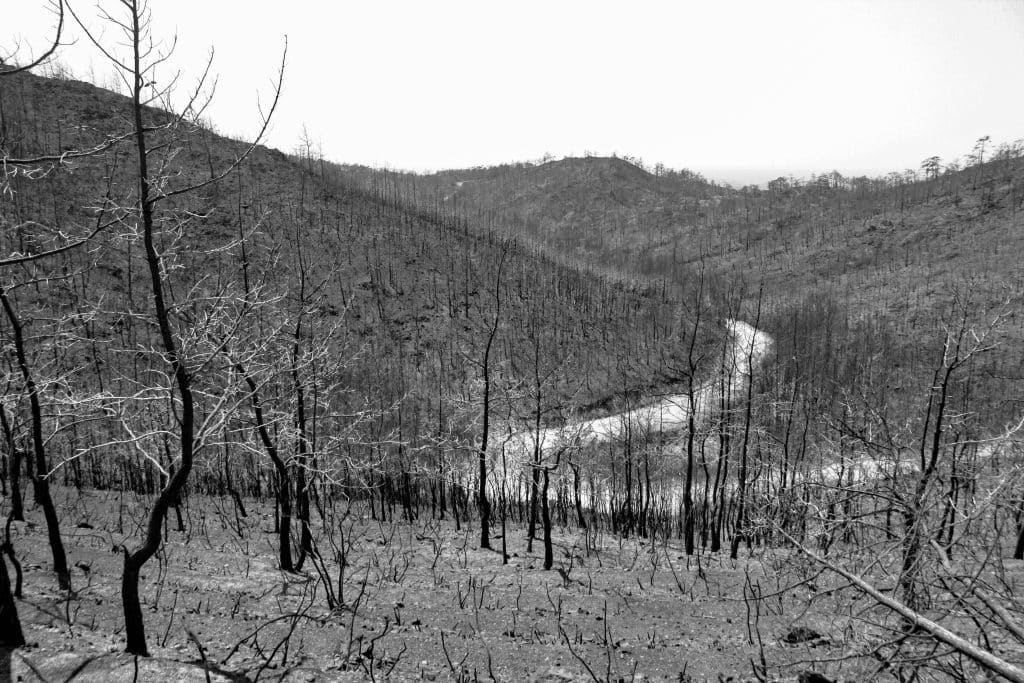
Although millions of dollars are spent to extinguish these fires, it is obvious that, with the current wildfire trends and the rapidly intensifying climate crisis, we must change the way we manage both wildfires and forests. Focusing on improving cooperation and coordination around fire management, especially with local communities, is vital to preventing and reducing wildfire impacts in the future.
Featured image: Utku Kuran
You might also like: 5 Sustainable Forest Management Strategies for Wildfire Prevention








